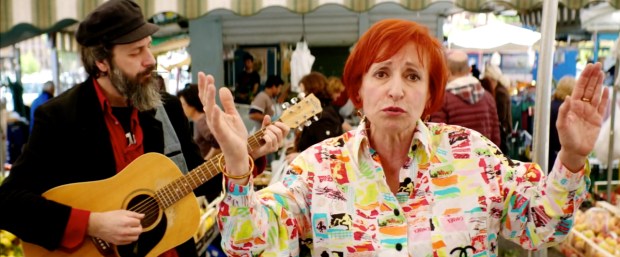The stornello (plural: stornelli) is a very simple form of popular poetry, often improvised. It has its origins in Tuscany, and from there it spread to Rome, where it has become the most typical form of popular poetry, and to the south. Although a famous stornello is quoted in Pietro Mascagni’s “Cavalleria Rusticana,” an opera that takes place in Sicily, the stornello is not originally Sicilian (Mascagni, the composer, was in fact from Tuscany).
Stornello stands for a storno, a Tuscan expression meaning, approximately, “rebound” or “bouncing.” The first singer improvises a stornello; the second singer must “bounce back” with a second improvised stornello that answers the first one. The competition among the stornellanti can go on for hours, as long as they are quick and witty and the people listening to them remain amused. Stornelli were a common form of entertainment in old pubs (taverne or osterie). The tradition is almost gone now, but not entirely.
You can hear Claudio Villa in a fierce competition of disrespectful stornelli with the most well-known Roman female folksinger, Gabriella Ferri (1942-2004). For example, she sings, “You are a bad singer, don’t even try to compete with me” and he answers, “You are so ugly that when you dive into the sea, the water runs away,” and they go on improvising like this for a while.

The most typical stornello has this form
Fior di giaggiolo, (Five syllables; it usually begins with the name of a flower which must rhyme with the third line)
Gli angeli belli stanno a mille in cielo, (eleven syllables; the last syllable must have a sound that is similar to the last syllable of the first line)
Ma bello come lui ce n’è uno solo. (Eleven syllables)
Translation
Iris flower,
There are thousands of beautiful angels in Heaven,
But only one is as beautiful as he is.
Of course, “he” could also be a “she,” depending on who is singing. (This is the stornello heard in “Cavalleria Rusticana.”)
The Roman stornelli are often a dispetto (disrespectful). They sound very much like the insult jokes that comedians address to one another (“You are so fat that…”). The first stornellante creates an insult. The second stornellante must answer with a worse one. In Pier Pasolini’s film “Mamma Roma” (1962) there is a well-known scene of insulting stornelli between the famous actress Anna Magnani and other actors.
However, the “king” of stornelli amorosi (love stornelli—no insults here) was the Roman singer Claudio Villa (1926-1987). Here are his most famous ones:
One example (the metric pattern is different from the previously mentioned):
Se tu fossi regina e io regnante
ti colmerei di perle di perle dell’oriente,
ti colmerei di perle dell’oriente
in cambio del tuo amore affascinante
(If you were queen and I were king
I would give you pearls from the Orient,
I would give you pearls from the Orient,
in exchange for your spellbinding love.)
In this final example,